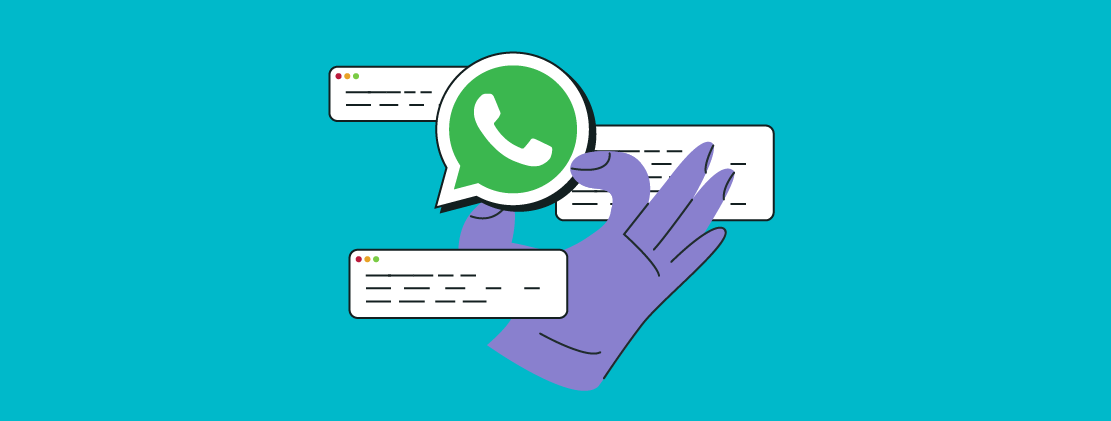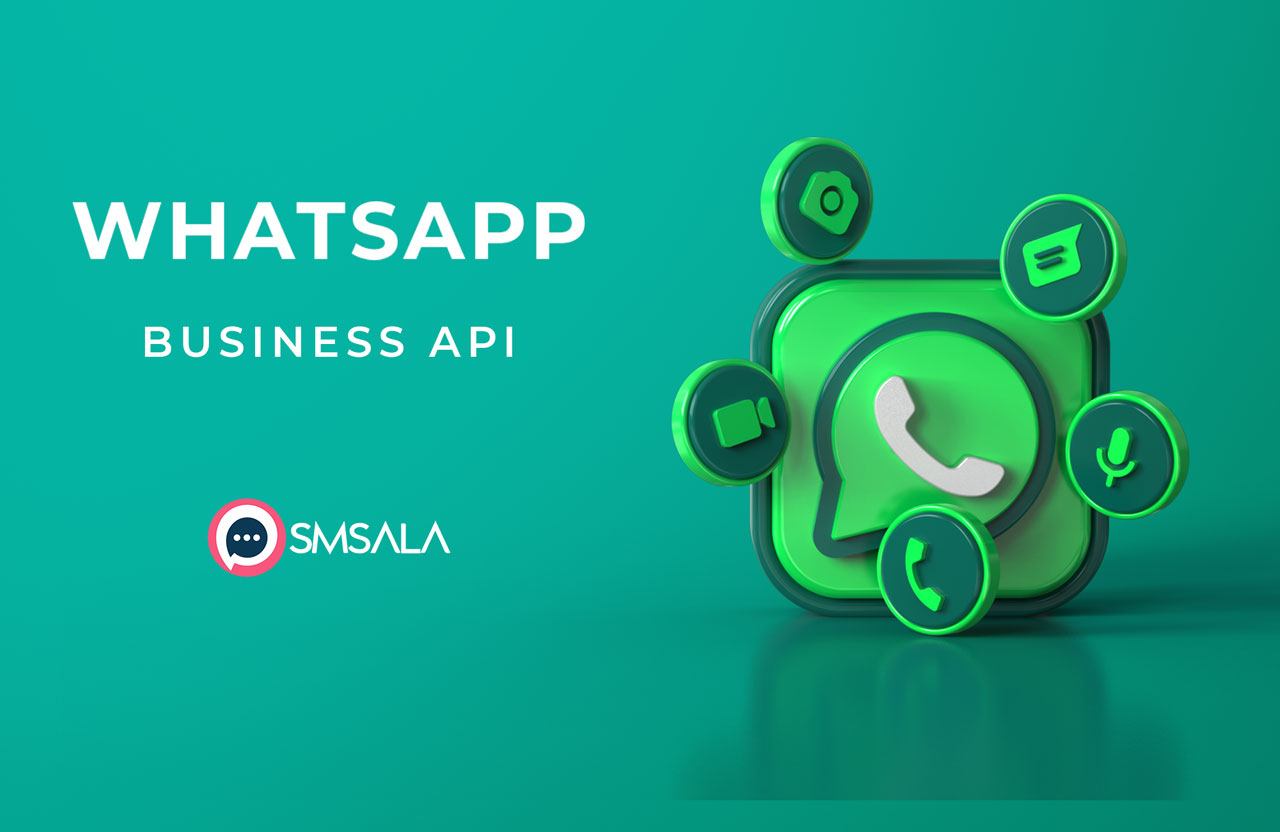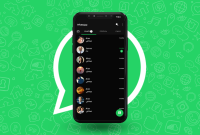In today’s digital landscape, businesses are constantly seeking innovative ways to connect with their customers and drive growth. Among the various communication channels, WhatsApp has emerged as a powerful tool for businesses to engage with their target audience, provide personalized support, and ultimately boost sales.
This article delves into the world of WhatsApp Business API, exploring its features, benefits, and strategies for leveraging this technology to fuel business growth.
WhatsApp Business API is a robust platform that empowers businesses to automate communication, enhance customer experiences, and gain valuable insights. By integrating WhatsApp Business API into their systems, businesses can unlock a range of possibilities, including automated messaging, chatbots, personalized marketing campaigns, and seamless customer support.
With its user-friendly interface and extensive features, WhatsApp Business API has become an indispensable tool for businesses looking to stay competitive and thrive in the digital age.
Understanding WhatsApp Business API

WhatsApp Business API is a communication platform designed for businesses to connect with customers on a large scale. It allows businesses to automate messages, send updates, and provide customer support through WhatsApp, the world’s most popular messaging app.WhatsApp Business API offers several advantages for businesses:
- Enhanced customer engagement: Businesses can interact with customers directly and in real-time.
- Improved customer support: Automated responses and chatbots can provide instant assistance to customers.
- Increased brand awareness: Businesses can reach a wider audience and build brand loyalty through personalized messaging.
Numerous businesses have successfully leveraged WhatsApp Business API to enhance their customer interactions. For example, KLM Royal Dutch Airlines uses WhatsApp to provide flight updates and boarding passes, while Unilever uses it to run marketing campaigns and offer customer support.
Key Features of WhatsApp Business API
WhatsApp Business API offers a range of powerful features designed to enhance customer engagement and streamline business operations. These features include automated messaging, chatbots, customer support, and marketing campaigns.
Automated Messaging
Automated messaging allows businesses to send pre-defined messages to customers based on specific triggers or events. This feature can be used to send welcome messages, order confirmations, shipping updates, and appointment reminders.
For example, an e-commerce store could use automated messaging to send customers an order confirmation message as soon as they complete a purchase. This message could include the order details, estimated delivery date, and tracking information.
Chatbots
Chatbots are AI-powered virtual assistants that can engage with customers in real-time. They can answer common questions, provide product information, and help customers resolve issues.
A travel agency could use a chatbot to answer customer questions about flight schedules, ticket prices, and baggage policies. The chatbot could also help customers book flights and make changes to their reservations.
Customer Support
WhatsApp Business API provides businesses with the ability to offer customer support through WhatsApp. Customers can send messages to a business’s WhatsApp number to get help with their orders, products, or services.
A software company could use WhatsApp Business API to provide customer support for its products. Customers could send messages to the company’s WhatsApp number to report bugs, ask questions, and get help with troubleshooting.
Marketing Campaigns
WhatsApp Business API can be used to create and send marketing campaigns to customers. These campaigns can include promotional messages, product updates, and special offers.
A clothing store could use WhatsApp Business API to send customers a message about a new sale or promotion. The message could include a link to the store’s website or a discount code.
Integrating WhatsApp Business API
Integrating WhatsApp Business API with your business systems is a crucial step to leverage its full potential. The process involves several key steps and considerations.
To begin, you will need to create a WhatsApp Business account and obtain an API key. This key allows you to connect your business systems to the WhatsApp platform.
Technical Requirements
- A stable internet connection
- A compatible programming language and development environment
- An understanding of API development and integration
Integration Process
- Establish a connection: Use the API key to establish a secure connection between your systems and the WhatsApp platform.
- Develop an interface: Create a user interface within your business systems that allows users to interact with the WhatsApp API.
- Configure message templates: Set up message templates for automated responses, notifications, and promotional messages.
- Handle incoming messages: Implement logic to process incoming messages from users and route them to the appropriate department or agent.
- Monitor and optimize: Regularly monitor the performance of your integration and make adjustments to optimize message delivery and user experience.
Best Practices
- Use a reliable API provider: Choose a reputable provider with a proven track record of stability and support.
- Follow WhatsApp guidelines: Adhere to WhatsApp’s policies and guidelines to ensure compliance and avoid account suspension.
- Test thoroughly: Conduct rigorous testing before deploying the integration to ensure seamless functionality.
- Provide excellent customer support: Ensure that your customers have a positive experience when interacting with your business through WhatsApp.
Developing Effective WhatsApp Business API Strategies

Developing effective WhatsApp Business API strategies is crucial for businesses seeking to leverage this powerful platform for growth. To achieve success, businesses must align their strategies with their overall business goals, considering factors such as target audience, content creation, and engagement tactics.
Target Audience Identification
Identifying the target audience is essential for crafting tailored messaging and content that resonates with potential customers. Businesses should conduct thorough market research to understand their audience’s demographics, interests, and communication preferences. This knowledge helps ensure that messages are relevant and effectively reach the intended recipients.
Content Creation
Content creation is a vital aspect of WhatsApp Business API strategies. Businesses must create engaging, informative, and visually appealing content that captures the attention of their audience. The content should be tailored to the specific interests of the target audience and align with the business’s overall brand voice and messaging.
Engagement Strategies
Engaging with customers is crucial for building relationships and driving conversions. Businesses should employ a variety of engagement strategies, such as personalized messages, interactive polls, and automated chatbots. By fostering meaningful interactions, businesses can increase customer satisfaction, build trust, and nurture long-term relationships.
Campaign Optimization and Tracking
Tracking the results of WhatsApp Business API campaigns is essential for optimizing strategies and ensuring success. Businesses should monitor key metrics such as open rates, click-through rates, and conversion rates. By analyzing these metrics, businesses can identify areas for improvement and refine their strategies to maximize effectiveness.
Measuring the Success of WhatsApp Business API
Measuring the success of WhatsApp Business API campaigns is crucial to optimize strategies and demonstrate return on investment (ROI). Key metrics to consider include:
-
-*Response Rate
The percentage of messages that receive a response from customers.
-*Average Response Time
The average time taken to respond to customer messages.
-*Customer Satisfaction
Feedback collected through surveys or customer reviews to gauge the overall experience.
-*Lead Generation
The number of qualified leads generated through WhatsApp interactions.
-*Sales Conversion
The number of leads converted into paying customers.
Data can be tracked and analyzed using WhatsApp Business API’s built-in analytics dashboard or through third-party tools. By monitoring these metrics, businesses can identify areas for improvement and refine their strategies to achieve optimal results.
Case Studies
-
-*E-commerce Company
A leading e-commerce company increased its sales by 25% by using WhatsApp Business API to provide personalized recommendations and quick order tracking.
-*Financial Institution
A financial institution improved customer satisfaction by 30% by leveraging WhatsApp Business API for instant account queries and loan application assistance.
-*Healthcare Provider
A healthcare provider enhanced patient engagement by 40% through WhatsApp Business API, offering virtual consultations and appointment reminders.
Final Thoughts
In conclusion, WhatsApp Business API is a game-changer for businesses seeking to harness the power of technology for growth.
By embracing the platform’s capabilities, businesses can streamline communication, enhance customer engagement, and drive measurable results. As the digital landscape continues to evolve, WhatsApp Business API will undoubtedly remain a cornerstone of effective business communication strategies, enabling businesses to connect with their customers in a personalized, efficient, and impactful way.
FAQs
What are the key benefits of using WhatsApp Business API?
WhatsApp Business API offers numerous benefits for businesses, including enhanced customer engagement, automated communication, improved customer support, increased sales opportunities, and valuable customer insights.
How can businesses integrate WhatsApp Business API with their systems?
Integrating WhatsApp Business API with business systems typically involves obtaining a WhatsApp Business API account, setting up a WhatsApp Business Profile, and utilizing the WhatsApp Business API client library or partnering with a WhatsApp Business Solution Provider.
What are some best practices for developing effective WhatsApp Business API strategies?
Effective WhatsApp Business API strategies involve defining clear goals, identifying the target audience, creating engaging content, personalizing messages, utilizing automation, and tracking and analyzing results to optimize campaigns.
How can businesses measure the success of their WhatsApp Business API campaigns?
Measuring the success of WhatsApp Business API campaigns involves tracking key metrics such as message delivery rates, response rates, customer engagement, conversion rates, and overall ROI. Regular analysis of these metrics helps businesses refine their strategies and maximize results.



